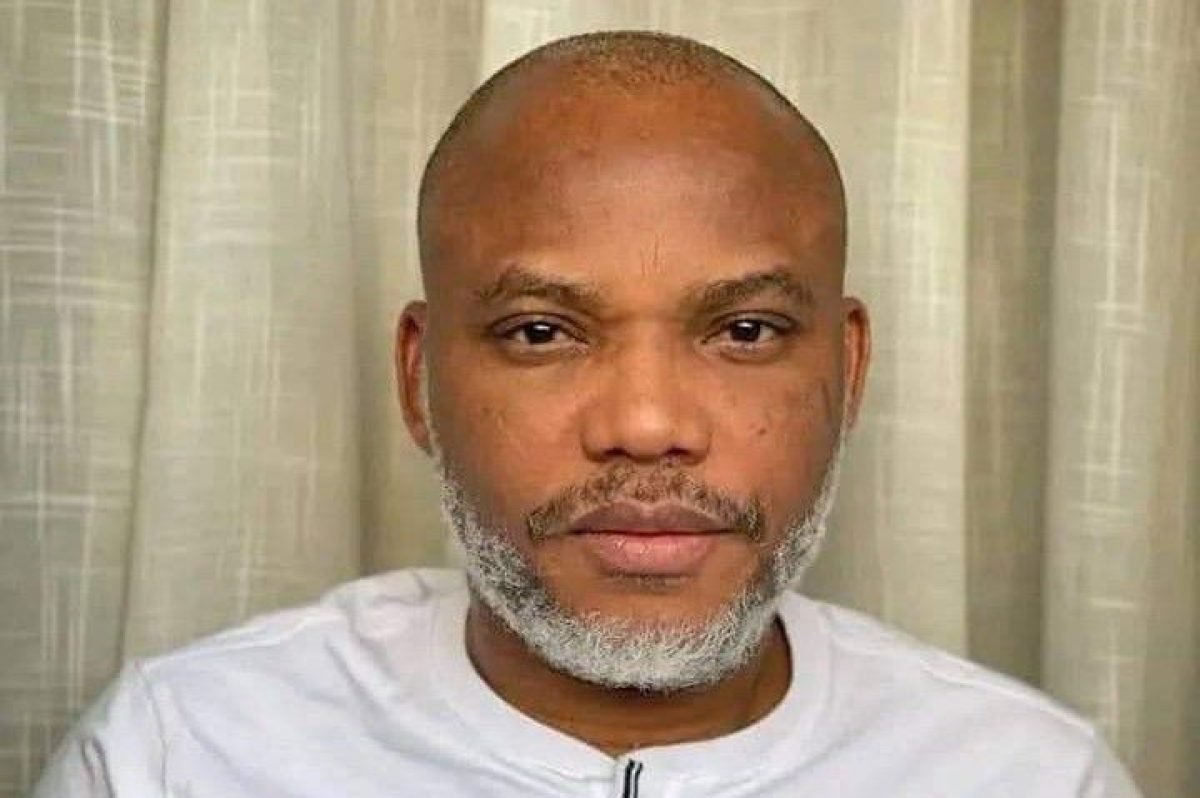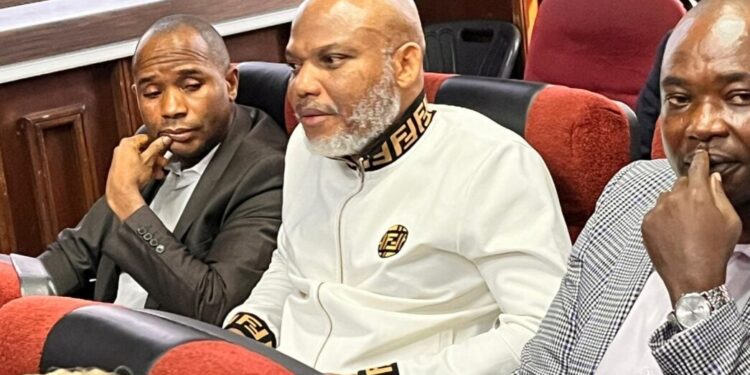The American Veterans of Igbo Descent (AVID), an association of U.S. military veterans, has condemned the ongoing trial of Indigenous People of Biafra (IPOB) leader Nnamdi Kanu as a “judicial travesty,” declaring that “justice is on trial” in a Nigerian court.
The group’s forceful condemnation follows an ultimatum issued to Kanu by Justice James Omotosho of the Abuja Federal High Court, demanding the IPOB leader enter a defence or forfeit the right. Kanu has refused to mount a defence, maintaining that the Nigerian government has no valid case against him.
In a statement signed by its President, Chief Dr. Sylvester Onyia, AVID asserted the trial lacks legal legitimacy. The core of their argument hinges on the claim that Kanu is being prosecuted under the repealed Terrorism (Prevention) (Amendment) Act, 2013, which was replaced by the Terrorism (Prevention and Prohibition) Act, 2022.

AVID accused Justice Omotosho of a “judicial dereliction of constitutional duty” for refusing to acknowledge the repeal and for deferring critical questions about the court’s jurisdiction. The group also cited a litany of procedural issues, from the denial of Kanu’s request for a brief recess to the broader “denial of access to lawyers and family” during his detention, as evidence that “every element of a fair hearing has been destroyed”.
Expressing dismay at the “cowardly silence” of Nigeria’s legal institutions, AVID called for Kanu’s unconditional release and urged international bodies, including the UN Human Rights Council and the U.S. Department of State, to monitor the “ongoing judicial abuses in Nigeria”.
Why It Matters
AVID’s intervention is significant; it’s not just another press release but a detailed legal indictment from a group with credibility in international corridors. By framing the trial as a “travesty,” they are shifting the focus from Kanu’s alleged crimes to the Nigerian government’s respect for its own legal order. Their argument that a “dead law” is being used is a profound challenge to the trial’s validity.
If true, it suggests the judiciary is being weaponized, trying a man under a statute that legally no longer exists. This moves the case from a courtroom drama to a fundamental test of Nigeria’s constitutional democracy and its commitment to the rule of law. The government’s response, or lack thereof, will be closely watched not just by secessionists, but by every investor and diplomat assessing the stability of Nigeria’s institutions.

















